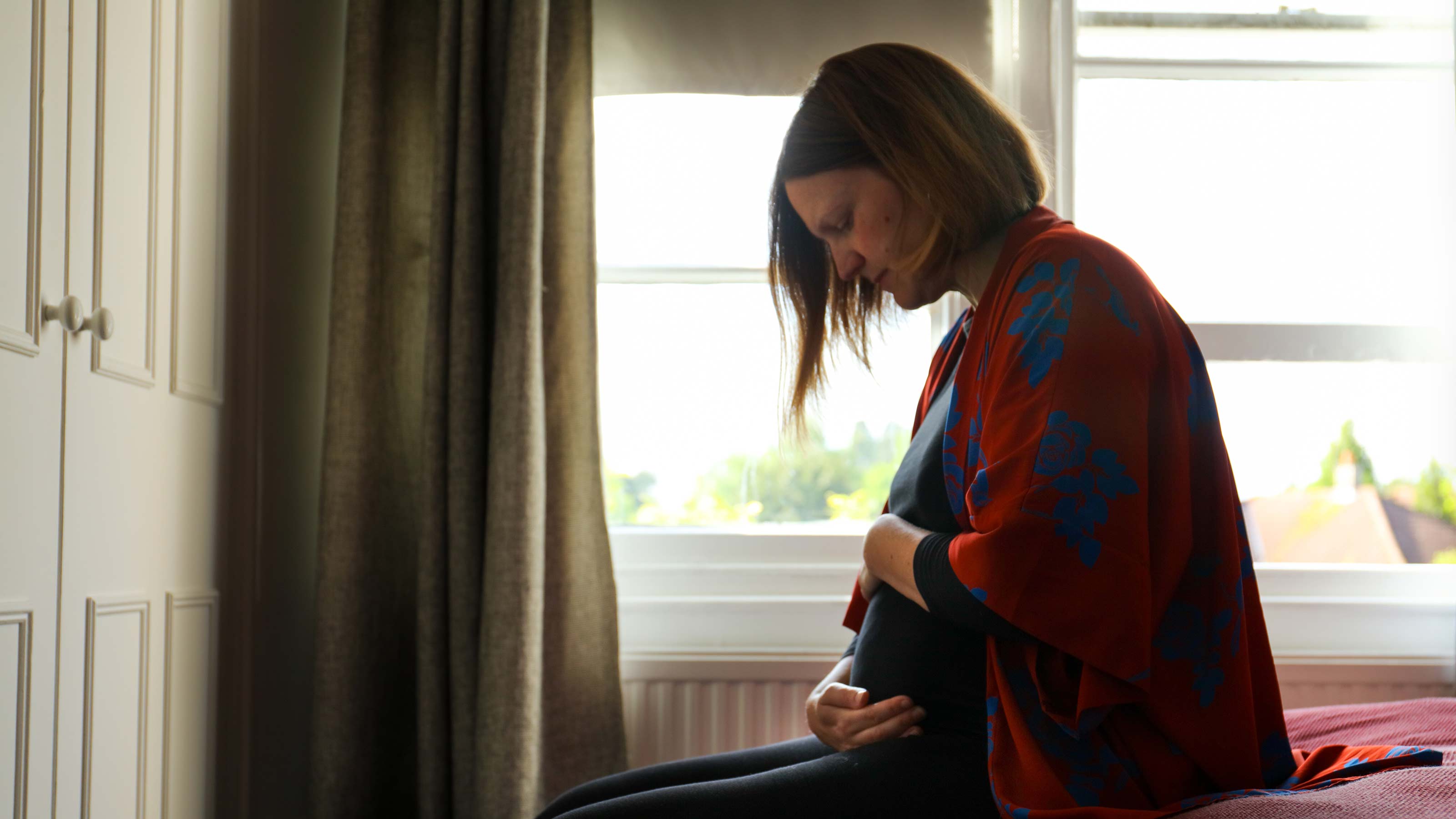Making health equity more than a dream
Beginning as a young doctor and researcher, Chyke Doubeni, MD, MPH, dedicated himself to helping people become healthier despite social, economic barriers.
On paper, he draws dots — and lines connecting the dots. The map of his life.
Nigeria is the first dot. The country where Chyke Doubeni, MD, MPH, grew up in a rural village and remote Ijaw fishing camp with no roads, in a home with dirt floors, a straw roof, no bathroom, no electricity, no running water. Close to his hometown, he could see the flames of the nearby oil refinery, a constant reminder of the region’s rich natural resources that were out of reach for most, though they had to live with the resulting environmental damage.
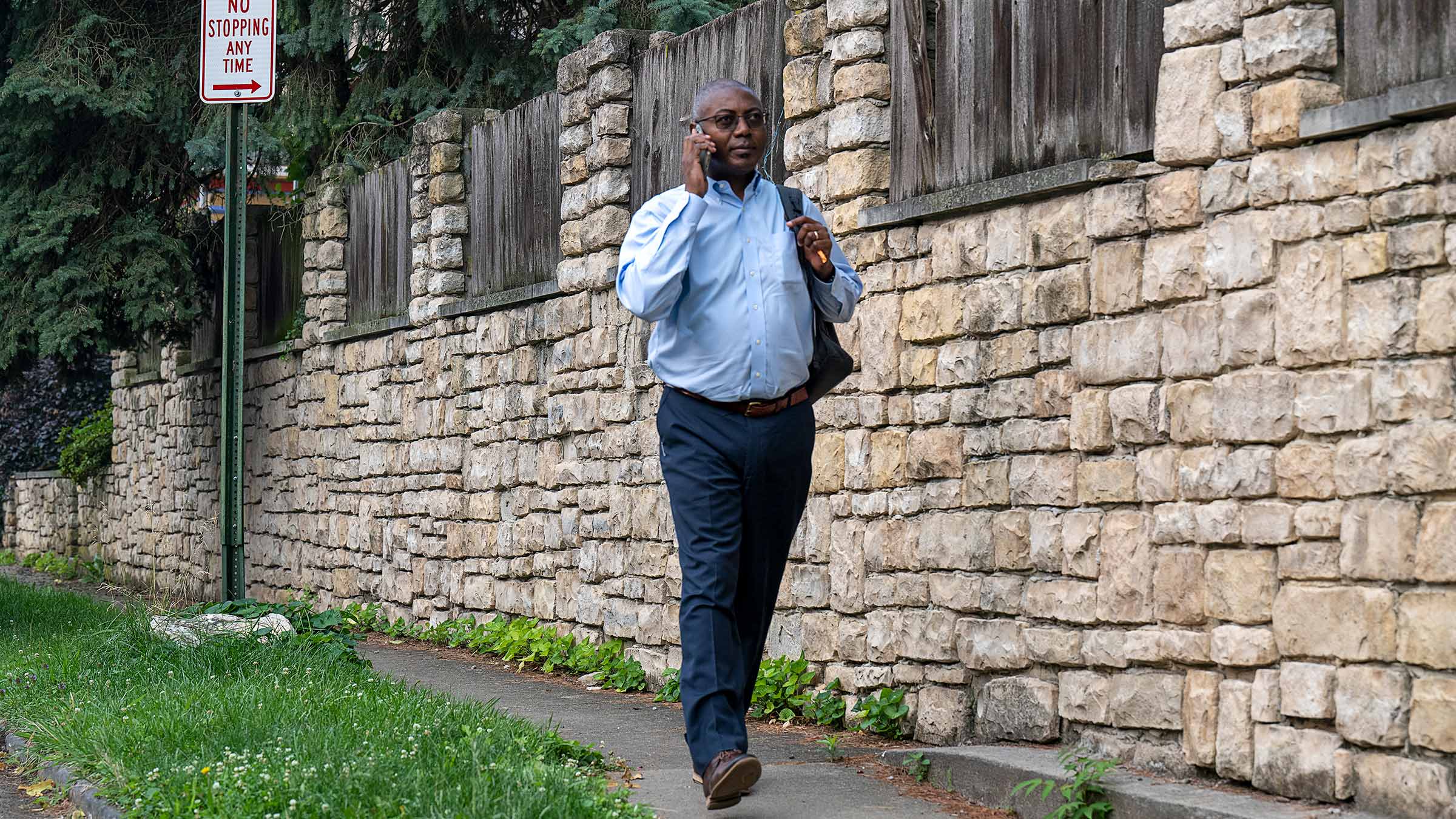
Dr. Doubeni’s numerous accolades include a 2010 Presidential Early Career Award for Scientists and Engineers from the president of the United States for accomplishments in research, mentoring and community service.
At the Ohio State Wexner Medical Center, Dr. Doubeni leads the Office of Health Equity and the health system’s efforts to improve the conditions causing poorer health and shorter life spans for people of color, people living in rural areas and other marginalized groups.
His vision is for faculty, staff and learners at Ohio State to better reflect the communities the medical center serves. A tenured professor in the Department of Family and Community Medicine at The Ohio State University College of Medicine, Dr. Doubeni is also an endowed Klotz Chair in Cancer Research.
He looks up from the page, all the dots and lines connecting the cities, his career path.
“It’s not that bad,” he says. “Only four continents.”
Four continents and eight states in three decades.
His journey from a dirt-floored hut to become an internationally known researcher and policy leader for his work in cancer prevention, public health and health equity has been dotted with experiences that have shaped his main ambition. He wants to remove obstacles many people face to living healthy lives because of their race, income or where they live.
Where a railroad divided a town
In his first job as a physician, Dr. Doubeni worked as a family practice doctor at a community health clinic in a small town outside Raleigh, North Carolina. It was the late 1990s.
Before starting the job, a doctor who grew up in the town told Dr. Doubeni what to expect. There was a railroad. On one side of the tracks lived people with means. On the other, the people with less means and all the Black people.
“I didn’t think much of what he said. It didn’t register,” Dr. Doubeni says. “I was excited about the job.”
Within a few months of working at the clinic, Dr. Doubeni discovered how difficult it was to find specialists who would accept his patients, most of whom were uninsured or receiving Medicaid or Medicare.
When he tried to get a patient an appointment with an ear, nose and throat specialist, one doctor told him he didn’t see Black patients. He used a slur.
Specialists wouldn’t take his patients for colonoscopies so Dr. Doubeni attempted to learn to do the procedure himself.
At the same time, he noticed troubling patterns in his patients. Many with diabetes struggled with high blood sugar levels and risked losing limbs, even though they came regularly to appointments.
Whether it was due to cost or some other challenges, Dr. Doubeni wasn’t sure. But he was determined to find out why so many of his patients had difficulty getting the benefits of treatment and getting well. From the clinic, he went on to the University of Massachusetts to pursue a master’s in public health and learn to do research.
“Somewhat naively, I became interested in trying to change what I was seeing, maybe even change the world,” he says.
A leader who listens
Before moving to Columbus in 2022, Dr. Doubeni directed the Mayo Clinic’s Center for Health Equity and Community Engagement Research across campuses in Rochester, Florida and Arizona. He worked with community members to ensure local residents had influence in the organization’s research.
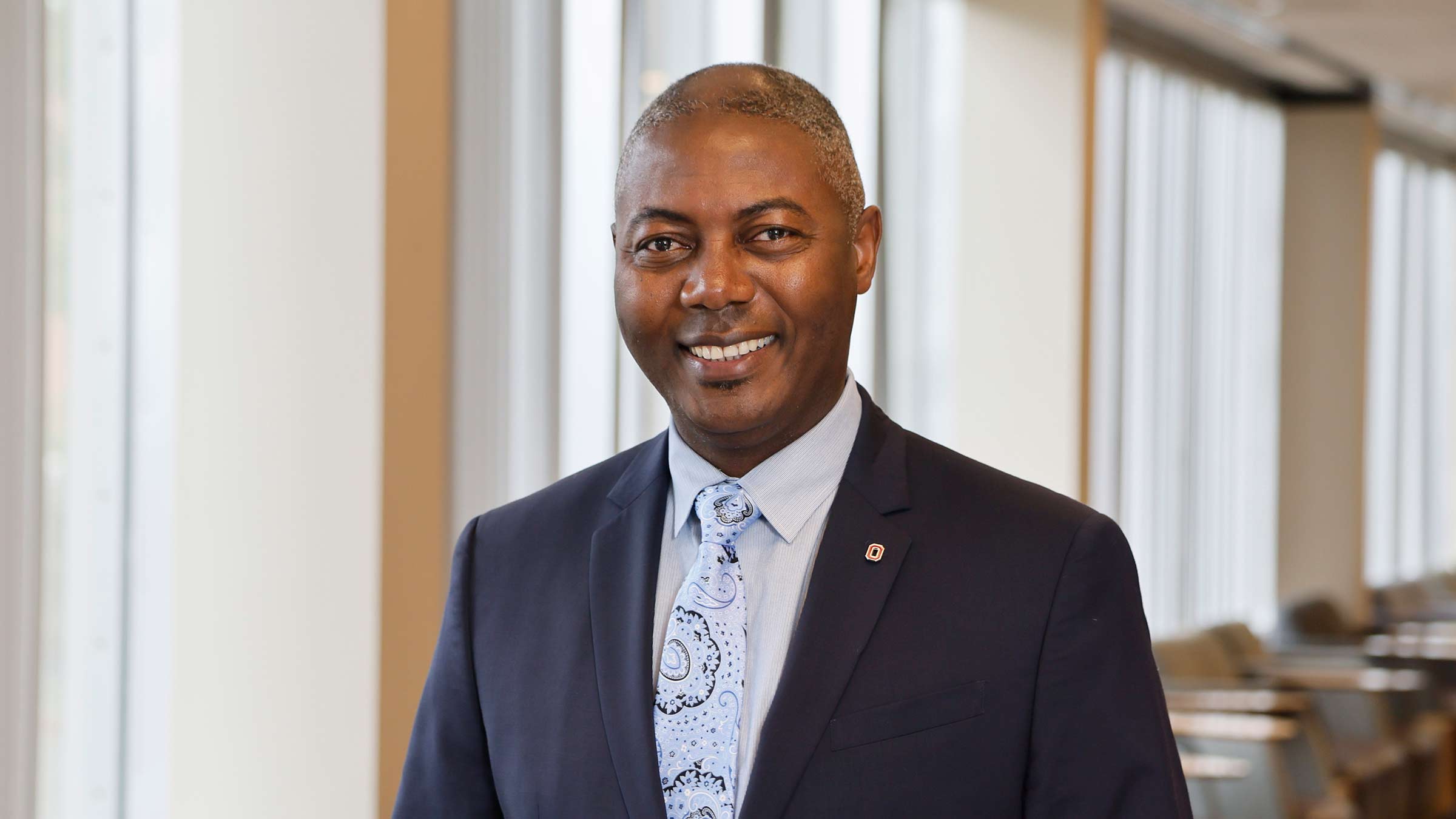
During the pandemic, he created task forces to combat misinformation about COVID-19, oversaw a testing center and worked to educate the community about the virus.
“He’s got lots of fancy letters after his name. He’s obviously an expert in his field, but that doesn’t get in the way of his being able to connect with people of all walks of life,” says Mary Gorfine, who was on a community advisory board Dr. Doubeni oversaw in Rochester.
“I’ve worked with a lot of good leaders over the years. The good ones are the ones who sit at the table like Chyke did. They’re good listeners,” Gorfine says.
“They also make it clear they’re not the smartest people in the room. Chyke makes you feel as if he’s learning from you, when in fact I’m learning tremendous amounts from him about leadership.”
Valuing the community’s perspectives
In virtual meetings, Dr. Doubeni sometimes has a picture of a classroom as his background. It’s a playful image but also intentional, a reminder to others that he’s interested in learning from them, in hearing their opinions. He doesn’t assume he knows more than they do.
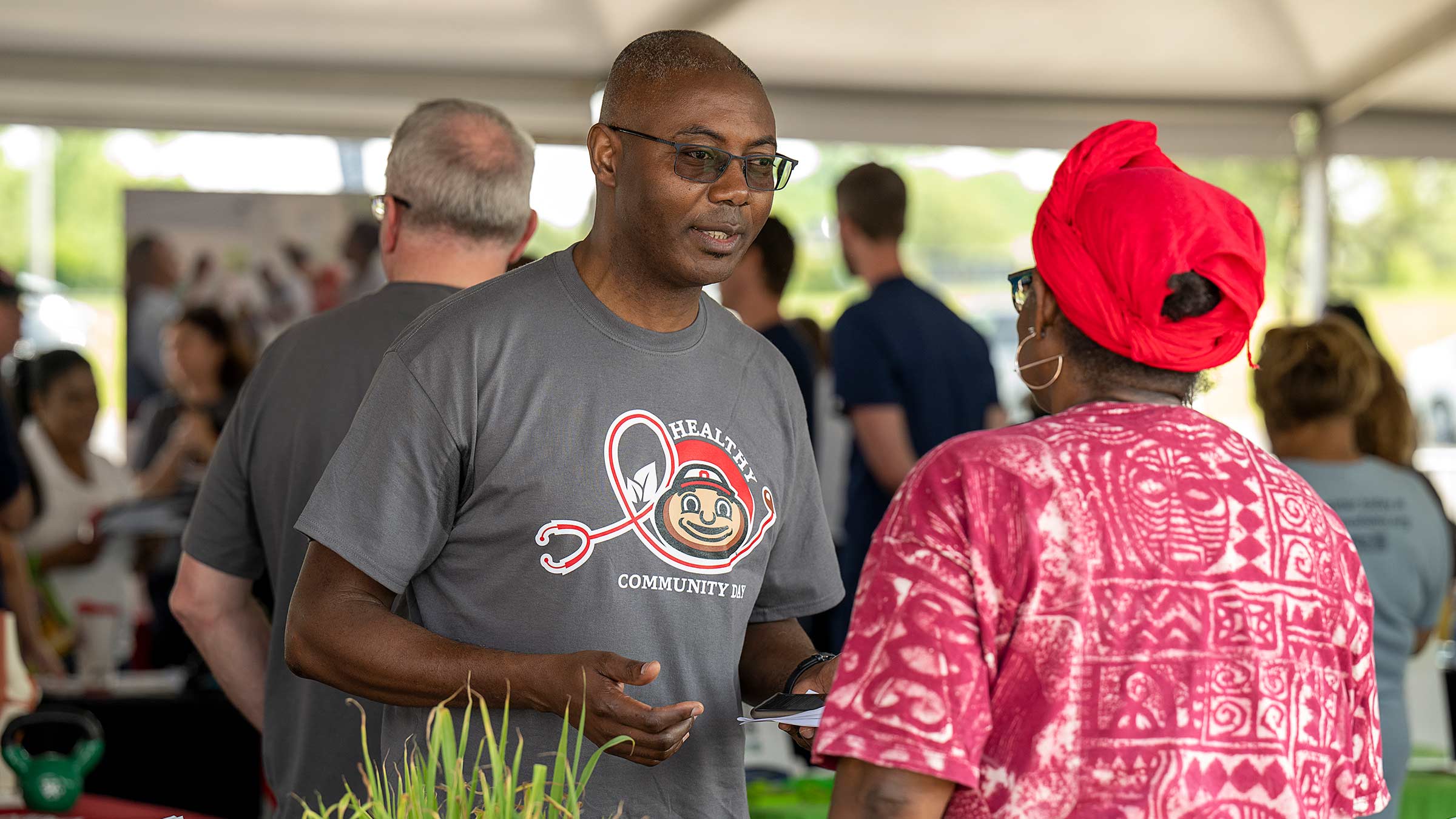
With that approach, he led the year-long process to create a plan for the Ohio State Wexner Medical Center to bring about greater health equity across Ohio.
On the Near East Side of Columbus, a historically Black community, Dr. Doubeni started a community advisory committee to learn residents’ priorities and concerns. He’s now leading an effort to understand and address those priorities.
“He places great emphasis on ensuring that anyone being affected by a program or decision has a seat at the table,” Stephanie Neff says.
As director of Volunteer Services at the Ohio State Wexner Medical Center, Neff has assisted with some of the community advisory groups and meetings Dr. Doubeni has helped lead.
“He’s constantly looking around the room and asking, ‘Who isn’t there but should be?’”
Under Dr. Doubeni’s leadership, all patients admitted to the medical center are now being screened to see if they need housing, food, transportation or a job, among other needs. With that information, staff at the medical center will provide referrals to the appropriate local agencies.
“Even if you receive excellent health care, if you have obstacles, you will do worse despite the care you received and you’ll have a high chance of returning to the hospital,” Dr. Doubeni says. “What if we break that cycle?”
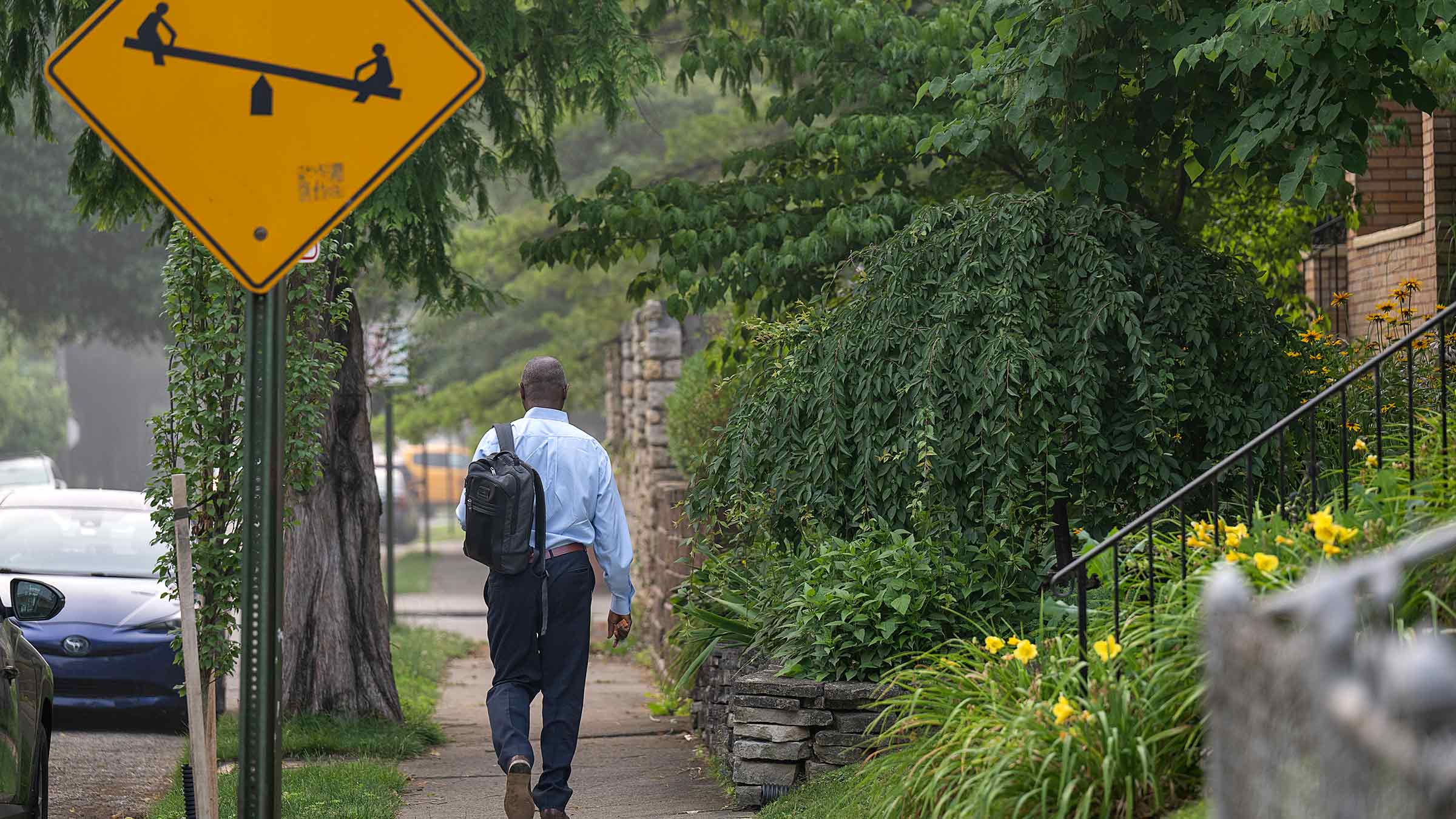
Seeing obstacles as guides
On the wall of Dr. Doubeni’s office hangs a picture his youngest child drew of a girl with incense swirling around her. She’s studying art; her brother is a software engineer and her sister is a security specialist. None of them chose medicine though both their parents are doctors.
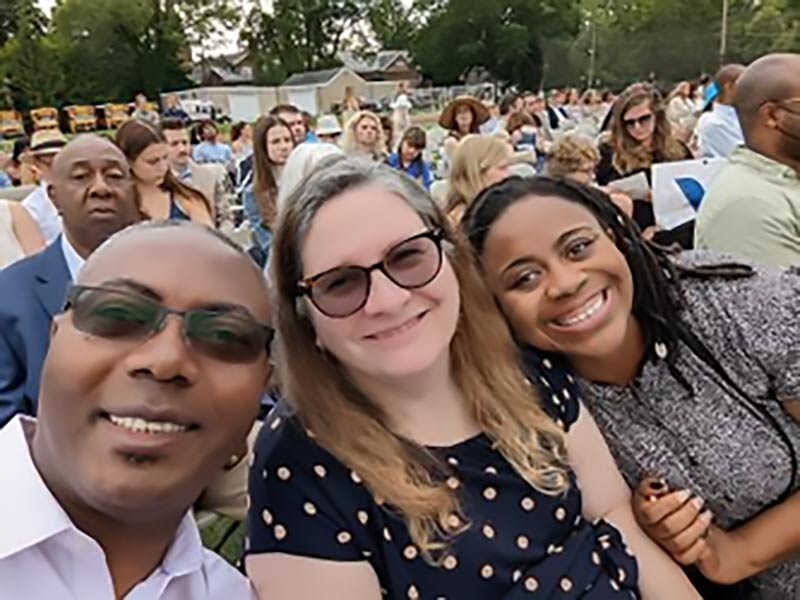 Their mother, Anna Boorse Doubeni, MD, MPH, is a family medicine physician, a global and population health specialist and vice chair of Community Health for the Department of Family and Community Medicine at the Ohio State Wexner Medical Center.
Their mother, Anna Boorse Doubeni, MD, MPH, is a family medicine physician, a global and population health specialist and vice chair of Community Health for the Department of Family and Community Medicine at the Ohio State Wexner Medical Center.
Also on the wall of his office, among the various diplomas, awards and certificates, is one from the Fellowship of the Royal Colleges of Surgeons in England. There, Dr. Doubeni began studying plastic surgery before coming to the United States.
The certificate reminds him not only of an accomplishment but of a path he didn’t take, a path he couldn’t take. A career in plastic surgery wasn’t available to him three decades ago when he was a new immigrant. But he never dwelled on it. Just another bend in the road.





